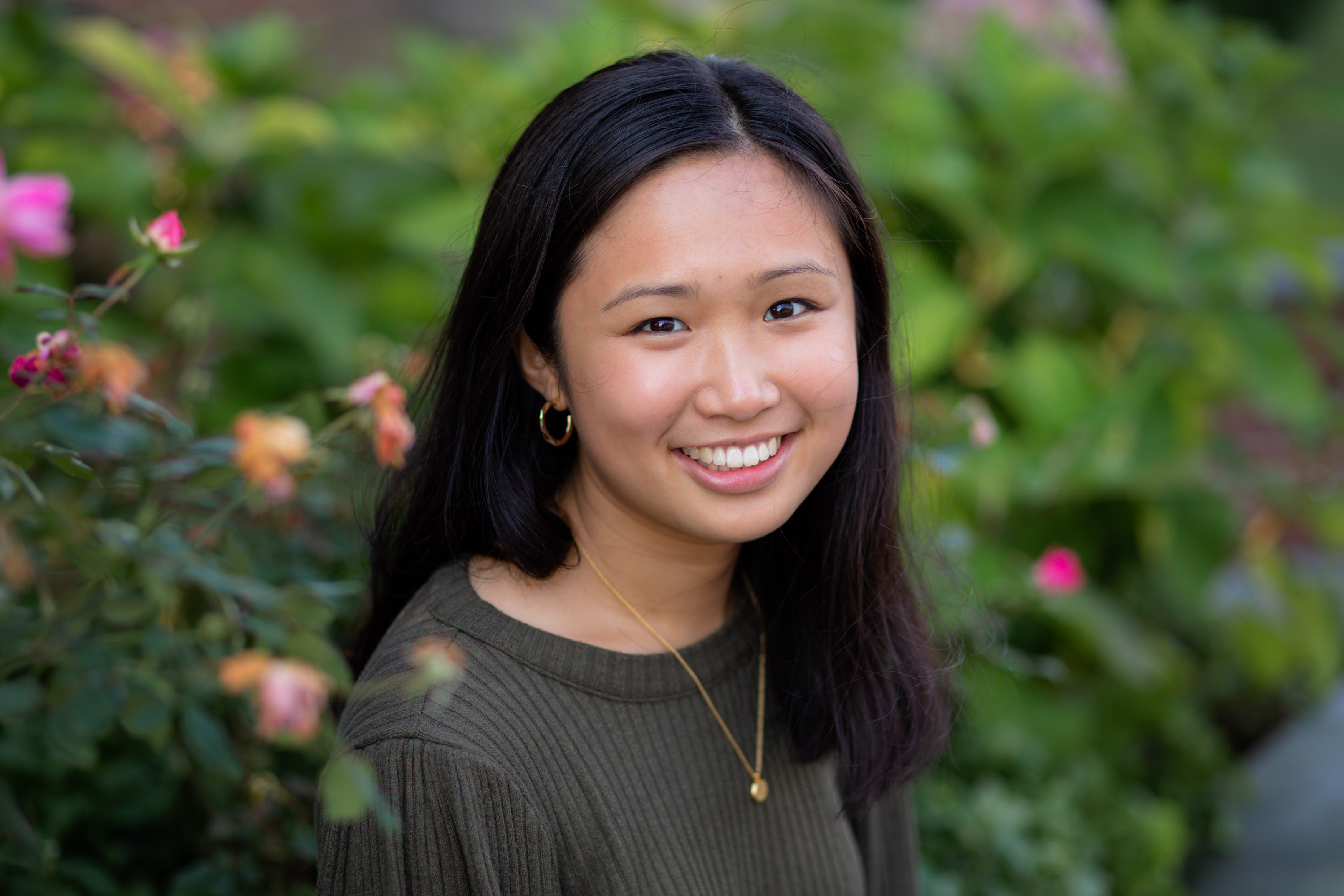ASIAN AMERICAN COMMUNITY FELLOWSHIP REFLECTION: LENA RHIE
 ASIAN AMERICAN STUDIES COMMUNITY FELLOWSHIP REFLECTION
ASIAN AMERICAN STUDIES COMMUNITY FELLOWSHIP REFLECTION
By Lena Rhie
Summer 2023
This summer, I had the opportunity to intern at KAN-WIN, an organization based in Park Ridge, Illinois that works to eradicate gender-based violence in the Asian American community and beyond. When considering what I wanted to do with my final college summer, KAN-WIN stood out with how they both serve individuals and families and push for broader systemic reform.
KAN-WIN consists of two teams that use different approaches to work towards their mission. The direct services team provides survivor-centered services by advising clients and operating a 24-hour emergency hotline, and the community engagement team supports education and outreach on gender-based violence issues. Having two distinct branches of the organization reflects the belief that there is not one “right” way to support survivors of domestic and sexual violence. The relationship between law and advocacy is complex, and I discovered the value of both approaches as I got to know the staff members who have varied perspectives on forms of justice.
KAN-WIN’s staff span a range of ages and life experiences. One of my favorite parts of the workday was when we would all gather in the kitchen. We would chat about topics from our favorite beauty brands to semi-permanent tattoos over an assortment of packed food for lunch, for staff birthdays we shared tea and cake, and some afternoons, we could decompress with sesame candy and chocolate. Spending time with the staff highlighted the importance of taking a break from work that can sometimes be heavy to handle, and I always looked forward to these precious moments in the day.
Through my work, I came across some startling facts; financial abuse occurs in 99% of domestic violence (DV) cases. Ruined credit scores, inconsistent work history, and homelessness can all limit a survivor’s ability to get back on their feet after experiencing abuse. To help combat this issue, KAN-WIN has been considering creating an economic empowerment program that would provide various forms of assistance to clients in need, and one of my main projects was to start envisioning what that would look like. After researching nearly 20 different economic empowerment programs in DV organizations across the country, I created an implementation plan that included recommendations like microlending, partnerships with banks and companies, a survivor internship program, and more. Programs like these are just a first step to ending cycles of abuse.
I also saw that interest in and experience with gender-based issues are multi-generational. Through multiple in-person workshops at the Vietnamese Association of Illinois in Argyle, I learned what gender-based issues meant to a group of Vietnamese American elders. Gender-based violence issues are not always talked about in the Asian American community, and it is imperative that our classrooms and communities share the experiences and demands of survivors. I am beyond grateful for KAN-WIN’s commitment to addressing these issues and existence as a welcoming space to the communities that need them.
Finally, I learned the history I was never taught in school. Between 1932 and 1945, over 200,000+ Asian women and girls (“comfort women”) were trafficked as sex slaves for Japanese soldiers, with survivors spanning across various countries from Korea, China, and the Philippines to Indonesia, Burma, Thailand, and more. Today, the Japanese government has yet to issue an apology or acknowledge their responsibility for this atrocity.
My internship experience culminated in KAN-WIN’s annual Global Action Day to demand justice for “comfort women” survivors, which falls on the anniversary of the first-ever public testimony by a “comfort woman” survivor that inspired numerous other survivors to come forward with their stories. Activists and community members gathered in downtown Chicago, holding signs that read “THE TRUTH WON’T DIE” and “200,000 VICTIMS, ZERO APOLOGIES.” During the program, I had the privilege of sitting next to the Statue of Peace, or “sonyeosong,” which is a visual representation of the power, pain, and resistance embodied by “comfort women” survivors. While there are few remaining survivors still with us, unacknowledged violence from the past is a continual threat to safety today.
My time at KAN-WIN has taught me that history must lay the groundwork for activism, and I am grateful to have been a part of the current fight of a generations-long effort.
